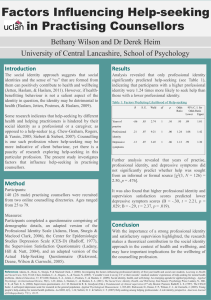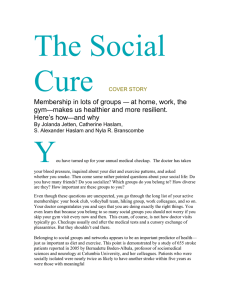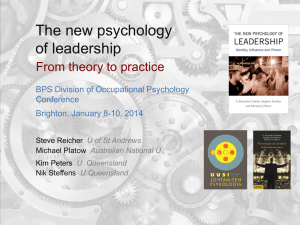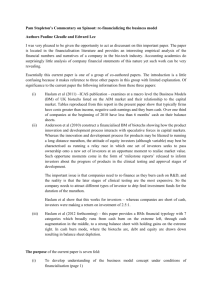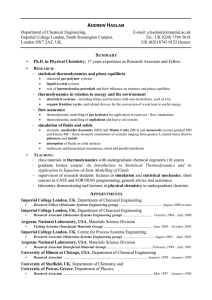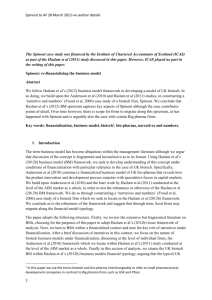Read more here
advertisement
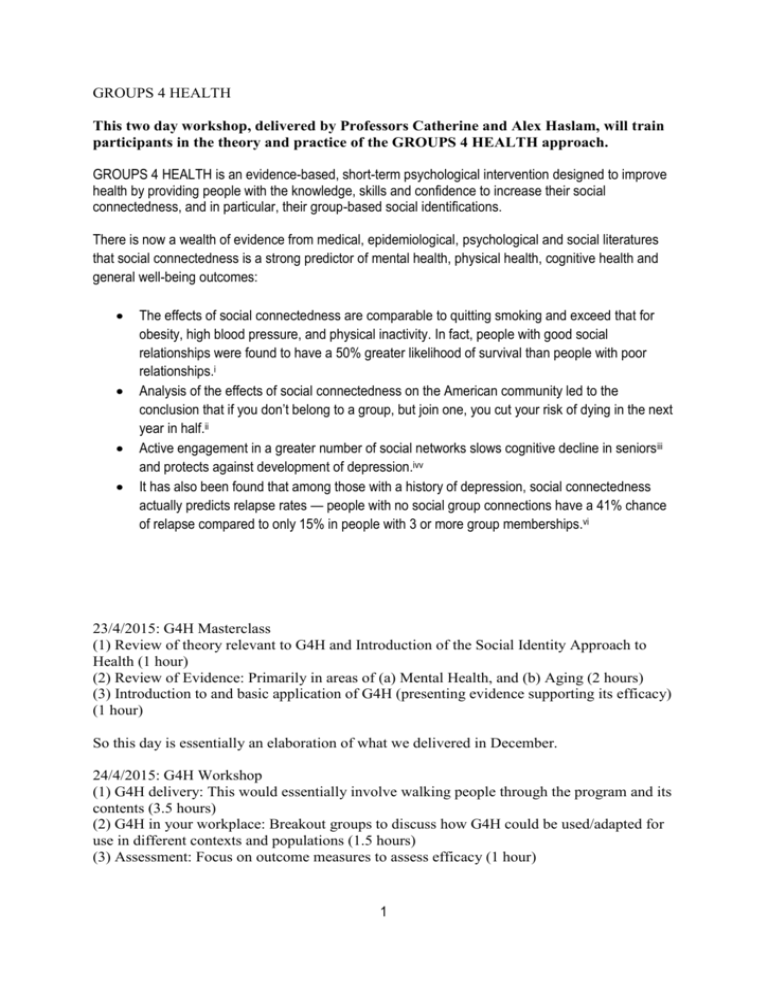
GROUPS 4 HEALTH This two day workshop, delivered by Professors Catherine and Alex Haslam, will train participants in the theory and practice of the GROUPS 4 HEALTH approach. GROUPS 4 HEALTH is an evidence-based, short-term psychological intervention designed to improve health by providing people with the knowledge, skills and confidence to increase their social connectedness, and in particular, their group-based social identifications. There is now a wealth of evidence from medical, epidemiological, psychological and social literatures that social connectedness is a strong predictor of mental health, physical health, cognitive health and general well-being outcomes: The effects of social connectedness are comparable to quitting smoking and exceed that for obesity, high blood pressure, and physical inactivity. In fact, people with good social relationships were found to have a 50% greater likelihood of survival than people with poor relationships.i Analysis of the effects of social connectedness on the American community led to the conclusion that if you don’t belong to a group, but join one, you cut your risk of dying in the next year in half.ii Active engagement in a greater number of social networks slows cognitive decline in seniors iii and protects against development of depression.ivv It has also been found that among those with a history of depression, social connectedness actually predicts relapse rates — people with no social group connections have a 41% chance of relapse compared to only 15% in people with 3 or more group memberships.vi 23/4/2015: G4H Masterclass (1) Review of theory relevant to G4H and Introduction of the Social Identity Approach to Health (1 hour) (2) Review of Evidence: Primarily in areas of (a) Mental Health, and (b) Aging (2 hours) (3) Introduction to and basic application of G4H (presenting evidence supporting its efficacy) (1 hour) So this day is essentially an elaboration of what we delivered in December. 24/4/2015: G4H Workshop (1) G4H delivery: This would essentially involve walking people through the program and its contents (3.5 hours) (2) G4H in your workplace: Breakout groups to discuss how G4H could be used/adapted for use in different contexts and populations (1.5 hours) (3) Assessment: Focus on outcome measures to assess efficacy (1 hour) 1 The Social Identity Approach to Health, on which GROUPS 4 HEALTH is based, draws on two established and highly influential social psychological theories — social identity theory10 and selfcategorization theory.11,12 Fundamental to these theories is the idea that social groups — whether they be family, friendship networks, community groups, sporting groups, religious groups, etc. — contribute to our understanding of who we are and give us a distinctive sense of self. This approach differs from other psychological theories which tend to define the self exclusively in terms of a person’s individuality (i.e., a sense of “I” and “me”). Social identity theorists argue that our sense of self is determined as much — and often more — by our relationships with groups of others (i.e., from whom we gain a sense of “we” and “us”) as by our individuality. When groups are internalized as part of our sense of self they furnish us with a sense of social identity and thereby become an important part of who we are. Not only are they a basis for our principles, values and behavior, but they also give a sense of meaning, purpose and direction. Holt-Lunstad, J., Smith, T. B., & Layton, J. B. (2010). Social relationships and mortality risk: A meta-analytic review. PLoS Med, 7(7). ii Putnam, R. (2000). Bowling alone: The collapse and revival of American Community. New York, NY: Simon & Schuster. iii Haslam, C., Cruwys, T., & Haslam, S. A. (2014). "The we's have it": Evidence for the distinctive benefits of social ties in enhancing cognitive health in ageing. iv Cruwys, T., Dingle, G. A., Haslam, C., Haslam, S. A., Jetten, J., & Morton, T. A. (2013). Social group memberships protect against future depression, alleviate depression symptoms and prevent depression relapse. Social Science and Medicine, 98, 179-186. v Cruwys, T., Haslam, S. A., Dingle, G. A., Haslam, C., & Jetten, J. (2014). Depression and social identity: An integrative review. Personality and Social Psychology Review, 18(3), 215-238. i vi Cruwys, T., Dingle, G. A., Haslam, C., Haslam, S. A., Jetten, J., & Morton, T. A. (2013). Social group memberships protect against future depression, alleviate depression symptoms and prevent depression relapse. Social Science and Medicine, 98, 179-186. 2

